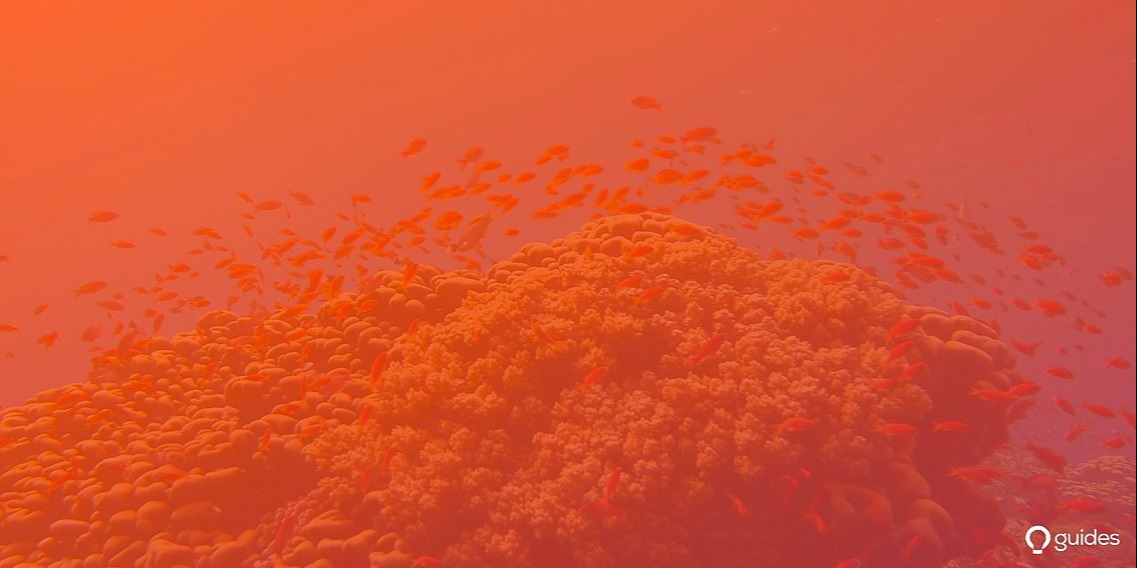
What Are Ecosystems?
Ecosystems are all around us in the natural world, for example a coral reef. It's a community of living organisms in conjunction with the non-living components of their environment, interacting as a complex (adaptive) system. The components are linked together through nutrient and energy flows, and give rise to a 'function' or behaviour. For example, in a coral reef energy enters the system as light, through photosynthesis 'powering' the system. Nutrients in the ocean are exchanged, and as a system the coral reef gives rise to a function: to sustain life in the ocean.
You can't really touch the ecosystem itself, is intangible. However, we can explore the components and relationships of which they are made.
Ecosystems on Guides.co
When we talk about ecosystems at Guides we are referring to man-made systems. Inspired by natural ecosystems, these socio-technical ecosystems are also distributed, adaptive, open systems with properties of self-organisation, scalability and sustainability.
Here too we find organic components (people: experts, practitioners, curators, and creators) and non-organic components (software: guides and hubs). Energy (time, money, effort, intrinsic and extrinsic motivations) 'powers' the system, and instead of nutrients, information and ideas (e.g. guides, comments, campfires, question) are exchanged. Through their interactions, relationships, dependencies, they form an identifiable whole around a topic. Each system is connected to other topics and part of a larger topic systems.
Next we will explore the layers that give rise to ecosystems.